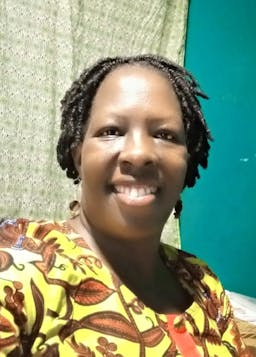The Power of Literacy in Woman
Jan 21, 2015
First story
I was taking a stroll around my neighborhood and I saw Amuge (about 40 years old) reading a piece of paper torn from a local newspaper under a mango tree in her compound. I passed by her to exchange some words as this is good neighborliness in the Iteso community. I was impressed because as a rural woman, rarely can one expect a woman to seriously be engaged in reading. This piece of paper seemed to have been used for wrapping something from the soap.
Amuge had soaked her clothes for laundry but seemed not in a hurry to wash as reading this piece of newspaper to have pre-occupied her and it seemed to be of great importance at that particular moment. I had a brief chat with Amuge where I learned a lot about her and her family. I was keen to know what was so interesting in that paper that had diverted her attention from her planned laundry wash. Amuge said that reading is something she misses because she had to drop out from school at sixteen years of age to get married. She narrated to me that she had always wanted to become a nurse as a child but her dreams where shattered when her parents married her off to settle a family debt. Her elder sister had divorced and her parents had to refund the dowry to the sister’s husband since it was alleged that she could not bear children in their marriage (this is the Iteso culture). Amuge is a peasant farmer and a fulltime house wife, she cannot access or afford newspapers or books to read. To her any literature should be read because it can change one’s life. “We need information to develop” she says.
Amuge is proud to say that she has enrolled for the Functional Adult Literacy classes in her village and can now read vernacular (Ateso) and reading information from any write up is something she treasures. So whenever she goes to buy anything from the shop or market she is happy when a newspaper is used to wrap her buy. Amuge lamented that, the day she was married off was the day she ‘died’ but the day she joined the FAL classes was the day she ‘resurrected’ and now has a cause to smile because she can know what is happening in other parts of the country. Amuge has 6 children and has vowed to ensure that he children have an education so that they do not miss out like her. Although she tries so hard, she still finds educating her children a huge burden and challenge.
Amuge also told me her husband is illiterate and does not want to accept this. I asked her why she thinks so. \"Yes, he would rather go to his friend to read for him a letter other than consult me\". This is in line with study conducted by IFAD, 2000 in Uganda that found that when husbands were themselves illiterate, they tended to discourage their wives from attending literacy classes. The wives said that illiterate husbands were threatened by the idea of their wives’ learning to read and write when they themselves could not. Men are willing to allow attendance as long as their wives’ skills do not exceed their own. Alternately, they are afraid that they will lose control at the family level. So why do these men not sign up for classes themselves? According to the study, men who are illiterate sometimes pretend to be literate out of shame and the fear of losing status in the eyes of other villagers. However, some women suggested that if functional adult literacy classes were presented as business training, they would attract more unashamed men.
Amuge is one of the women who are determined to change their lives through literacy. She also has the ambition of becoming a community leader (Local council 1 councilor) in the next elections now that she is able to read and write basic Ateso language . She says she has gained more confidence now. She also states that being illiterate makes you feel inadequate in society but now I feel I have a great potential. Most women now come to her for advice and even to read for them some of their communications.




